VinFast Inaugurates Tamil Nadu EV Plant
- By MT Bureau
- August 04, 2025
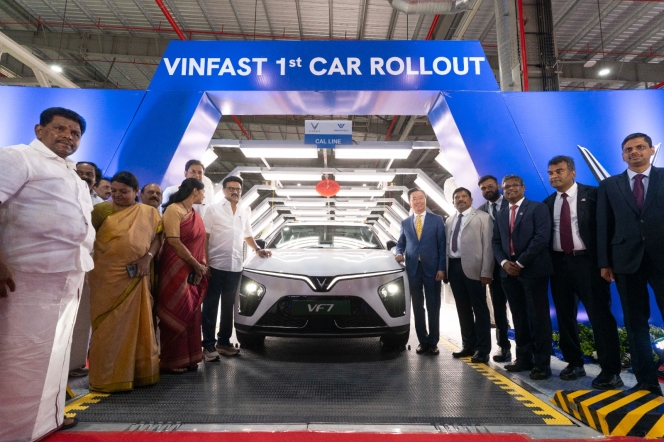
Vietnamese automaker VinFast has officially inaugurated its electric vehicle assembly plant at SIPCOT Industrial Park in Thoothukudi, Tamil Nadu, India.
The new facility is VinFast’s third operational plant and the fifth project in its global manufacturing network. It is part of the company’s long-term bet on selling its vehicle in the world’s third-largest automobile market.
The factory is spread across 400 acres and is equipped with state-of-the-art production lines, featuring advanced automation and technologies. The complex houses multiple workshops, including body shop, paint shop, assembly shop, quality control centre, and a logistics hub. It also includes an auxiliary cluster for local contractors, which is expected to expand in the coming years.
The company expects to create around 3,500 jobs for local workers at full capacity, along with several thousand indirect jobs in the supply chain ecosystem. To start with, the company will assembly the VF 7 and VF 6 electric vehicles with a capacity of 50,000 units per annum, which can be scaled upto 150,000 units per annum to meet market demand.
VinFast states with the Tamil Nadu plant on stream, it moves closer to its 2025 sales target of 200,000 vehicles and its long-term production goal of 1 million vehicles per year by 2030.
Pham Sanh Chau, CEO, VinFast Asia, said, “The VinFast Tamil Nadu plant marks a strategic milestone in our long-term commitment to the Indian market. It establishes a strong foundation for sustainable growth and positions us to offer high-quality, competitively priced electric vehicles to Indian consumers. Looking ahead, the facility will expand its production capacity to meet rising demand. We aim to develop it into VinFast’s largest export hub for South Asia, the Middle East, and Africa. In fact, we've already secured initial orders from several countries across these regions. In close collaboration with the Tamil Nadu government, VinFast is working to transform the area into the 'EV capital of South Asia'—supporting both the dynamic domestic market and our broader regional ambitions.”
Going forward, VinFast aims to further promote localisation, technology transfer and also upskill its workforce.
- Tata Motors Passenger Vehicles
- TMPV
- Jaguar Land Rover
- JLR
- Range Rover Evoque
- M K Stalin
- N Chandrasekaran
Tata Motors And Jaguar Land Rover Commence Operations At New Tamil Nadu Facility
- By MT Bureau
- February 09, 2026
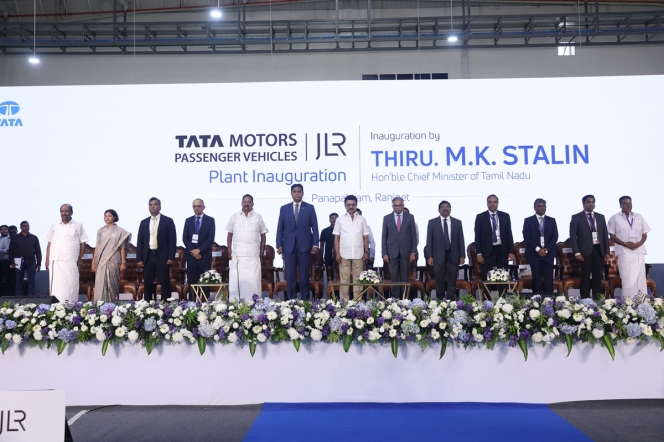
Tata Motors Passenger Vehicles (TMPV) and its subsidiary Jaguar Land Rover (JLR) have begun operations at a new manufacturing facility in Panapakkam, Ranipet district. The plant is a greenfield development designed to produce internal combustion engine (ICE) vehicles and electric vehicles (EVs) for both brands.
The first vehicle produced at the site is the locally manufactured Range Rover Evoque. The project represents an investment of INR 90 billion and is expected to create 5,000 direct jobs.
The facility covers 470 acres and marks the first phase of a larger manufacturing hub. It is designed to reach an annual production capacity of 250,000 vehicles over the next five to seven years. The site is intended to serve both domestic and international markets, utilising its proximity to Tamil Nadu's ports for exports.
Key Plant Features:
- Sustainability: Guided by carbon-neutral principles, the plant intends to operate on 100 percent renewable energy.
- Manufacturing Scope: Includes assembly for next-generation passenger cars and luxury SUVs.
- Workforce: Focuses on local recruitment and aims for a high share of women employees across levels.
The opening of the Panapakkam plant signals a shift for JLR's Indian operations. The company intends to migrate Completely Knocked Down (CKD) assembly for several models from its Pune facility to this new hub in southern India. This move is designed to enhance operational efficiency and capture increasing demand in the luxury vehicle segment.
M K Stalin, Chief Minister of Tamil Nadu, said, “Tata Group has long played a pivotal role in nation building and shares a deep, historic partnership with Tamil Nadu. With the commencement of operations at this new manufacturing facility and the rollout of the first Range Rover Evoque in Panapakkam, Ranipet, the state is proud to witness the expansion of world-class automotive manufacturing. Tamil Nadu welcomes this significant milestone and remains committed to supporting industries that create jobs, drive innovation, and reinforce our position as India’s leading hub for manufacturing and mobility.”
N Chandrasekaran, Chairman, Tata Sons and TMPV, added, “The inauguration of our Panapakkam facility marks a significant milestone in the Tata Group’s journey to accelerate India’s leadership in sustainable and future-ready manufacturing. We are also proud to deepen our long-standing partnership with Tamil Nadu, a state that continues to drive industrial excellence, innovation, and inclusive growth. With this facility, we look forward to producing vehicles of exceptional quality, craftsmanship, and technology for customers in India and around the world.”
- Skoda Auto Volkswagen India
- SAVWIPL
- Kylaq
- H D Kumaraswamy
- Union Cabinet Minister of Heavy Industries and Minister of Steel
- Piyush Arora
Skoda Auto Volkswagen India Crosses 50,000-Unit Production Milestone For Kylaq SUV
- By MT Bureau
- January 27, 2026
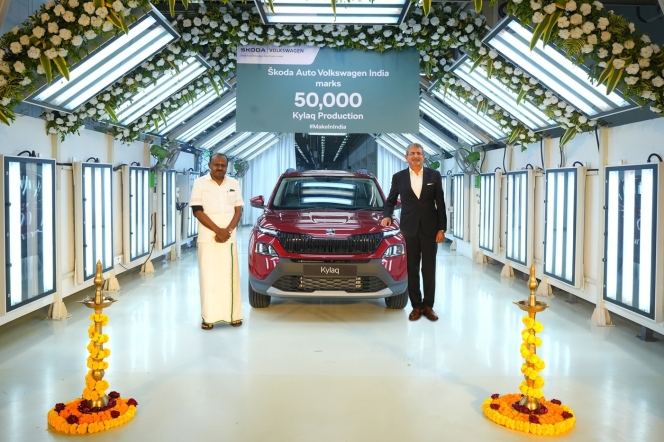
Skoda Auto Volkswagen India (SAVWIPL) has achieved a new production milestone of rolling out 50,000 units of the Skoda Kylaq from its Chakan facility.
The Kylaq, the company stated, has contributed 36 percent to the Group’s YoY growth in 2025. It achieved this volume by expanding its operations and increasing the use of domestic components.
To support the production of the Kylaq, SAVWIPL increased the capacity of the Chakan plant by 30 percent. The vehicle is built on the MQB-A0-IN platform, a chassis architecture designed for the Indian market. The group has focused on localisation and the development of a local supplier network to support its manufacturing output.
The milestone follows 25 years of the group's presence in India, during which it has developed an integrated ecosystem and a local talent pool. By increasing production and localisation, the company aims to support the government’s manufacturing initiatives while deepening its engineering and sourcing capabilities within the country.
H D Kumaraswamy, Union Cabinet Minister of Heavy Industries and Minister of Steel, said, “I congratulate Skoda Auto Volkswagen India on achieving this production milestone and for their continued commitment to the ‘Made in India’ initiative.”
Piyush Arora, MD & CEO, Skoda Auto Volkswagen India, said, “The 50,000‑unit milestone for the Kylaq reflects the deep trust and affection our customers have shown for this product. Built on the proven MQB‑A0‑IN platform, the Kylaq’s success is a powerful validation that vehicles designed in India, both for India and the world, continue to earn admiration and confidence from customers domestically and globally.”
Hindalco Commissions INR 45 Billion Investment To Manufacture FRP & Battery Grade Aluminium Foil In Odisha Facility
- By MT Bureau
- January 27, 2026
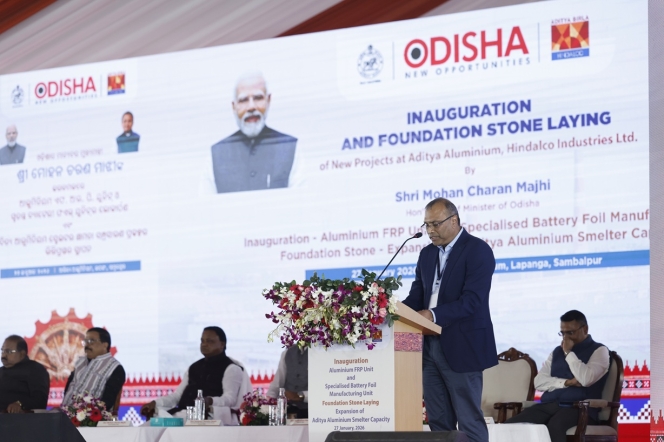
Hindalco Industries has announced an INR 210 billion expansion of its aluminium smelter in Sambalpur, Odisha. The project will add 360,000 tonnes per annum of capacity to the Aditya Aluminium complex. Additionally, the company has commissioned a manufacturing facility for flat rolled products (FRP) and battery-grade aluminium foil following an investment of INR 45 billion.
The facilities form part of a growth programme involving INR 370 billion of planned expenditure in Odisha. The battery-grade foil plant is intended to provide raw materials for the production of lithium-ion cells, with a capacity to support 100 GWh of manufacturing. The expansion of the FRP unit aims to reduce India’s reliance on imported flat-rolled aluminium, which currently accounts for 40 percent of domestic consumption.
The smelter expansion incorporates plans to use round-the-clock renewable energy for a portion of its power requirements. This project connects upstream resources with downstream manufacturing, linking bauxite mining and alumina refining to the production of foil and high-grade materials. The company expects the next phase of investment to create 15,000 jobs in the region, adding to its current workforce of 23,000 in the state.
Kumar Mangalam Birla, Chairman, Aditya Birla Group, said, “India’s manufacturing growth depends on integration, value addition and sustainability. Through Hindalco, we are building a fully integrated aluminium ecosystem that spans from upstream resources to high-value downstream products. Our long-standing partnership with Odisha continues to play an important role in this journey. This strategy strengthens India’s self-reliance, supports critical sectors, and accelerates the nation’s transition towards advanced, sustainable manufacturing.”
Satish Pai, Managing Director, Hindalco Industries, added, “The FRP expansion and smelter growth at Sambalpur exemplify our integrated upstream–downstream growth strategy. This enables Hindalco to deliver high-quality aluminium solutions across packaging, defence, electric mobility, renewable energy and advanced manufacturing, positioning us strongly to support India’s industrial ambitions while creating long-term value.”
Hindalco’s roadmap in Odisha includes the Kansariguda alumina refinery, the Meenakshi coal mine, and units for white fused alumina. The company has invested over INR 250 billion in the state over the last 15 years. These developments are part of a wider INR 550 billion capital expenditure plan across India.
Chery To Acquire Nissan’s South Africa Manufacturing Assets
- By MT Bureau
- January 26, 2026
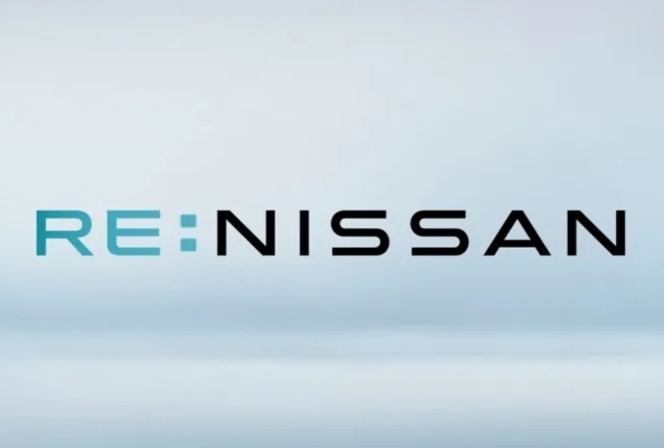
Japanese automaker Nissan and China’s Chery have reached an agreement for the acquisition of Nissan’s manufacturing facilities in Rosslyn, South Africa, which is subject to regulatory approvals and the fulfilment of specific conditions.
As per the understanding, Chery will purchase the land, buildings and associated assets, including the stamping plant, in mid-2026. Chery will offer employment to the majority of Nissan’s current staff at the site on terms and conditions similar to their existing contracts. The move follows a period of impact on the utilisation and viability of the plant within Nissan's global operations.
Despite the sale of the production facility, Nissan will maintain its commercial presence in South Africa. The company plans to continue its sales and service operations and has scheduled several vehicle launches for the 2026 fiscal year, including the Nissan Tekton and Nissan Patrol.
The acquisition allows the Rosslyn site to remain an active part of the South African automotive manufacturing sector. The preservation of the facility also aims to maintain opportunities for the existing local supplier network that services the plant.
Jordi Vila, Nissan Africa President, said, “Nissan has a long and proud history in South Africa and has been working to find the best solution for our people, our customers and our partners. External factors have had a well-known impact on the utilisation of the Rosslyn plant and its future viability within Nissan. Through this agreement we’re able to secure employment for the majority of our workforce thereby also preserving opportunities for our supplier network. This move also ensures that the Rosslyn site will continue contributing to the South African automotive sector.”







Comments (0)
ADD COMMENT